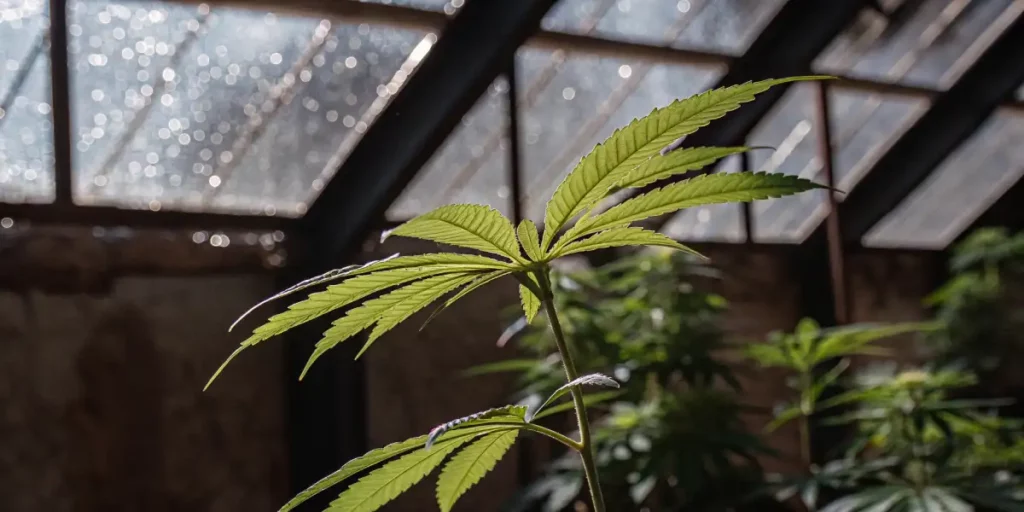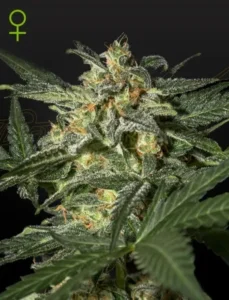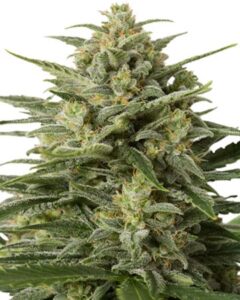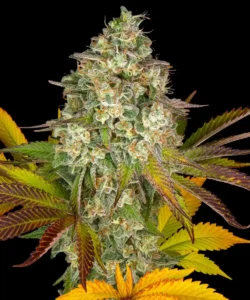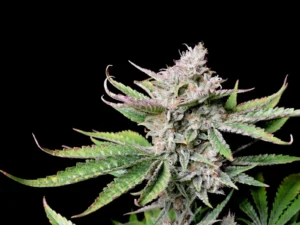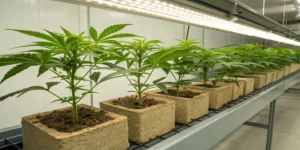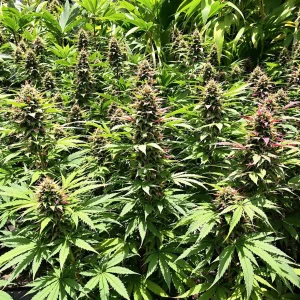Proper cannabis plant nutrition is essential for achieving robust growth and a bountiful harvest. Whether you’re planting your first seed or you’re a seasoned cultivator, knowing the nutritional needs of your cannabis plants can make a significant difference in your yield. Cannabis plants, like all living organisms, require a balanced intake of nutrients to thrive. These nutrients help in various physiological processes, leading to healthy and vigorous plants.
Choosing the right nutrients can be daunting, but it doesn’t have to be. The best fertilizers for cannabis growth are those that provide a balanced ratio of macronutrients and micronutrients. Macronutrients include nitrogen, phosphorus, and potassium. Meanwhile, micronutrients consist of elements like calcium, magnesium, and iron. Each plays a specific role in the plant’s development, ensuring that your cannabis grows strong and healthy.
Recommended Strains
Auto White Widow
|
|
THC | 15% - 16% (Medium) |
|
|
Lineage | White Widow x Ruderalis |
|
|
Type | Autoflowering |
|
|
Height | 3.44 ft | 1.05 m |
|
|
Yield Outdoor | 3.17 - 6.35 oz/plant | 90 - 180 g/plant |
|
|
Life Cycle | 8 - 9 weeks |
|
|
Phenotype | 60% Indica / 40% Sativa |
|
|
Effects | Sedative, Powerful, Relaxed |
|
|
Flavors | Spicy, Woody, Sweet, Earthy |
White Widow Fem
|
|
THC | 24% - 25% (High) |
|
|
Lineage | South American Sativa Landrace x South Indian Indica Landrace |
|
|
Type | Feminized |
|
|
Height | 5.25 ft | 1.6 m |
|
|
Yield | High |
|
|
Yield Indoor | 1.64 oz/ft² | 500 g/m² |
|
|
Yield Outdoor | 22.93 oz/plant | 650 g/plant |
|
|
Flowering Time | 9 - 10 weeks |
|
|
Phenotype | 60% Indica / 40% Sativa |
|
|
Effects | Euphoric, Happy, Uplifted |
|
|
Flavors | Earthy, Pungent, Spicy |
For growers interested in organic solutions, using organic nutrients for cannabis plants can be a sustainable option. Organic nutrients are derived from natural sources and can help improve soil health over time. They not only provide essential nutrients but also encourage beneficial microbial activity in the soil, which can enhance nutrient uptake by the plants.
Best Fertilizers for Cannabis Growth
Fertilizers are crucial for supplying plants with the nutrients they need. When looking for the best fertilizers for cannabis growth, it’s important to consider both the type and timing of application. Commercial fertilizers are available in liquid or granular forms and can be tailored to meet the specific needs of cannabis plants at different growth stages.
For example, during the vegetative stage, a fertilizer high in nitrogen promotes leafy growth. As the plant transitions to the flowering stage, a higher concentration of phosphorus is beneficial for bud development. A well-timed application of these fertilizers can significantly boost growth and yield. Check out strains like Blue Dream, available at Global Green Genetics, which can thrive with a well-planned nutrition regimen.
When selecting the best fertilizers for cannabis growth, it is also crucial to consider the growing environment. Indoor and outdoor cultivation may require different approaches to fertilizer application. Outdoor growers might benefit from slow-release fertilizers that work with natural weather patterns, while indoor growers can use hydroponic systems for precise nutrient delivery. Knowing the specific needs of your growing environment will help in choosing the most effective fertilization strategy.
Additionally, it’s important to monitor your plants regularly and adjust your nutrient regimen as necessary. Environmental factors such as light intensity, humidity, and temperature can influence how your cannabis plants absorb nutrients. By keeping these factors in check, you can optimize your fertilization efforts and ensure that your plants are receiving the right balance of nutrients throughout their growth cycle.
Organic Nutrients for Cannabis Plants
Organic nutrients provide a more natural approach to cannabis cultivation. They come from decomposed plant or animal matter, providing a slow-release of nutrients that can be more readily absorbed by the plants. This can lead to healthier plants and improved soil quality over time.
Some popular organic nutrients include worm castings, bone meal, and kelp extract. These not only supply essential nutrients but also improve soil structure and water retention. Using organic nutrients can also reduce the risk of nutrient burn, a common issue with synthetic fertilizers.
Another advantage of using organic nutrients for cannabis plants is their ability to support sustainable agriculture practices. By promoting healthier soil ecology, organic nutrients can help reduce the need for chemical interventions, making them an excellent choice for eco-conscious growers. Additionally, organic fertilizers often contain trace elements and beneficial compounds that enhance overall plant health beyond basic nutrient supply.
It’s worth noting that organic nutrients may take longer to show results compared to synthetic alternatives. However, the long-term benefits, including increased resilience to pests and diseases, can make them a worthwhile investment. When implementing organic nutrition strategies, patience and consistency are key to achieving optimal results in cannabis plant nutrition.
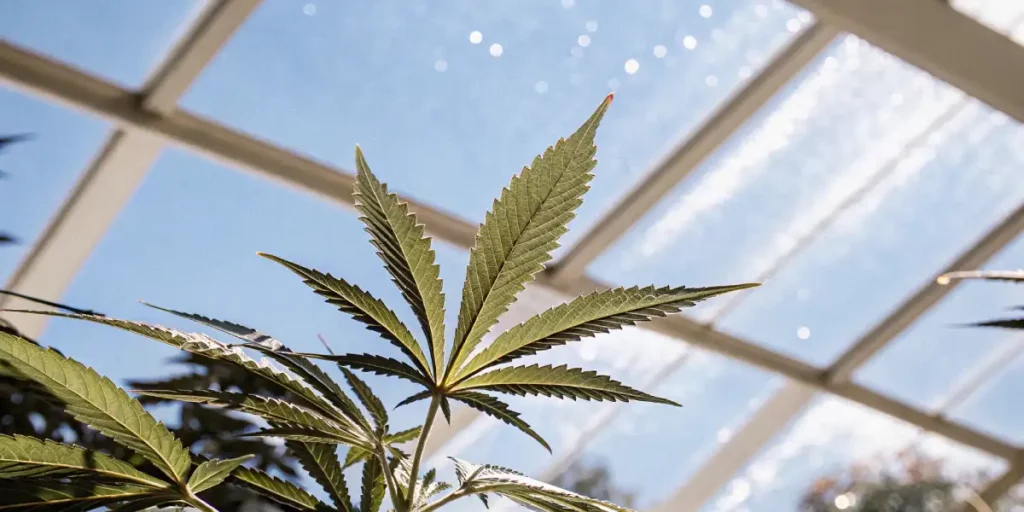
Cannabis Plant Nutrient Deficiency Solutions
Nutrient deficiencies can hinder cannabis growth and affect yield quality. Common signs of deficiencies include yellowing leaves, stunted growth, and poor bud formation. Addressing these issues promptly is crucial for maintaining plant health.
Solutions for cannabis plant nutrient deficiency include adjusting the pH level of your growing medium. A neutral pH allows for optimal nutrient uptake. Additionally, ensuring a balanced supply of all essential nutrients can prevent deficiencies from occurring in the first place. The White Widow strain, known for its resilience, can still suffer from deficiencies if not properly managed. Find this strain at Global Green Genetics for a robust option that thrives with balanced nutrition.
To effectively address cannabis plant nutrient deficiency, it’s essential to accurately diagnose the problem. This can involve soil testing to determine the specific nutrient levels and identify which nutrients are lacking. Once diagnosed, a targeted nutrient solution can be applied to correct the deficiency. This can be done through foliar feeding or adjusting the soil nutrient composition to ensure the plant receives what it needs.
Besides to correcting deficiencies, preventative measures can be taken to avoid them altogether. Regularly checking the pH and electrical conductivity (EC) of your growing medium can help maintain an environment conducive to nutrient absorption. By staying vigilant and proactive, growers can ensure their plants remain healthy and productive throughout their lifecycle.
Homemade Cannabis Plant Nutrition Recipes
Creating homemade cannabis plant nutrient recipes can be a cost-effective and sustainable way to feed your plants. Using everyday items, you can create nutrient-rich solutions that cater to your plants’ needs. For example, banana peels can be used to make a potassium-rich tea, beneficial during the flowering stage.
Eggshells are another household item that can be repurposed. They are rich in calcium, which is essential for cell wall development. Simply crush the shells and mix them into your soil for a slow-release calcium boost.
Another homemade solution involves using compost tea, which is rich in beneficial microbes and nutrients. By brewing a compost tea, growers can introduce a wide range of nutrients and beneficial bacteria to their plants, enhancing soil health and nutrient uptake. This method is particularly useful for small-scale growers looking to maintain healthy plants without relying on commercial fertilizers.
Besides to compost tea, you can use molasses as a carbohydrate source to feed beneficial microbes in the soil. This helps create a thriving microbial environment that supports nutrient absorption and overall plant health. By integrating these homemade cannabis plant nutrient recipes into your cultivation routine, you can promote sustainable growth and achieve impressive yields.
Optimizing Cannabis Plant Nutrient Uptake
Ensuring your cannabis plants can absorb the nutrients you provide is key to successful cultivation. Optimizing cannabis plant nutrient uptake involves preparing the soil or growing medium in a way that facilitates nutrient absorption.
One effective method is to use mycorrhizal fungi, which form a symbiotic relationship with plant roots. These fungi increase the root surface area, allowing for greater nutrient absorption. Additionally, maintaining proper watering practices can prevent nutrient lockout, which occurs when nutrients are present but unavailable to the plant.
Incorporating biochar into your soil is another technique to improve nutrient uptake. Biochar enhances soil structure and increases the retention of nutrients and water, making them more available to the plant roots. By improving soil aeration and reducing compaction, biochar contributes to a healthier root environment, facilitating better cannabis plant nutrition.
Furthermore, regular monitoring of your plants and adjusting nutrient levels as needed can optimize nutrient uptake. This includes observing plant growth patterns and making necessary changes to the nutrient regimen. By maintaining a dynamic approach to cannabis plant nutrition, growers can ensure their plants receive the right nutrients at the right time for optimal growth and yield.
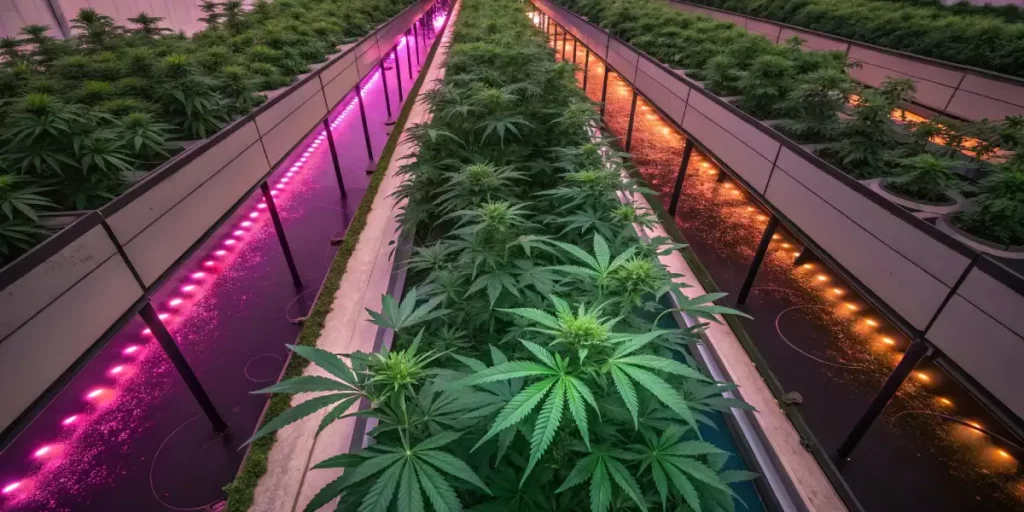
FAQs on Cannabis Plant Nutrition
What are the signs of nutrient deficiency in cannabis plants?
Nutrient deficiencies manifest in various ways, depending on which nutrient is lacking. Common signs include yellowing leaves, which often indicate a nitrogen deficiency. If you notice purple stems or leaves, it might be a phosphorus deficiency. Similarly, brown spots on leaves can signal a lack of calcium or magnesium.
Addressing these signs early is crucial. Testing the soil pH and adjusting it to ensure optimal nutrient uptake can prevent deficiencies. Also, applying a balanced nutrient solution can quickly restore plant health. Regularly checking your plants for these signs can help maintain their vigor and productivity.
Besides to visual signs, nutrient deficiencies can also impact the plant’s aroma and potency. A deficiency can result in weaker, less aromatic buds, affecting the overall quality of the harvest. By maintaining vigilant observation and conducting regular soil tests, growers can catch and correct deficiencies before they significantly impact cannabis plant nutrition and yield.
It’s important to note that nutrient deficiencies can sometimes be confused with other issues such as pest infestations or environmental stress. Proper diagnosis is essential to effectively address the problem and ensure your plants receive the correct treatment to thrive.
Can I use household items as fertilizers for my cannabis plants?
Absolutely! Many household items can be repurposed as fertilizers. For instance, banana peels are rich in potassium and can be used to make a nutrient-rich tea for flowering plants. Coffee grounds add nitrogen to the soil and can be sprinkled around the base of your plants.
Eggshells are another great option as they provide calcium, essential for cell wall development. Just crush and mix them into your soil. These homemade solutions are not only cost-effective but also environmentally friendly, allowing for sustainable gardening practices.
Additionally, using fish emulsion as a fertilizer can provide a rich source of nitrogen, phosphorus, and potassium, crucial for cannabis plant nutrition. This organic solution can be created by fermenting fish waste and can help support lush vegetative growth and robust flowering.
Another DIY option is to use wood ash, which is high in potassium and can help balance soil pH. By incorporating these household items into your nutrient regimen, you can create a diverse and sustainable nutrient profile for your cannabis plants, enhancing both growth and yield.
How often should I fertilize my cannabis plants?
The frequency of fertilization depends on several factors, including the plant’s growth stage and the type of nutrients used. Generally, during the vegetative stage, cannabis plants benefit from weekly feeding with a nitrogen-rich fertilizer.
As the plants transition to the flowering stage, reduce nitrogen and increase phosphorus and potassium. It’s crucial to follow the instructions on commercial fertilizers to avoid overfeeding, which can harm your plants. Monitoring your plants and adjusting as needed based on their response is the best approach.
For those using organic nutrients for cannabis plants, the feeding schedule might differ as these nutrients tend to release more slowly. It may be necessary to monitor plant response more closely and adjust feeding frequency accordingly. Organic methods often require a more patient approach, allowing time for the natural processes to take effect.
Ultimately, the goal is to maintain a consistent nutrient supply without overwhelming the plants. Observing plant health and growth can provide valuable insights into whether your fertilization schedule needs adjustment, ensuring optimal cannabis plant nutrition throughout the growth cycle.
Are organic nutrients better than synthetic ones for cannabis growth?
Both organic and synthetic nutrients have their advantages. Organic nutrients are derived from natural sources and improve soil health over time. They encourage beneficial microbial activity, which can enhance nutrient uptake and overall plant health.
Synthetic nutrients, on the other hand, offer precise control over nutrient ratios and are often easily absorbed by plants. The choice between organic and synthetic depends on your cultivation goals and growing environment. Some growers prefer organic for its sustainability, while others opt for synthetic for its convenience and effectiveness.
When considering cannabis plant nutrition, it’s important to weigh the long-term benefits of organic methods against the immediate results provided by synthetic options. Organic nutrients often contribute to a more balanced ecosystem within the soil, potentially reducing the need for pest and disease intervention.
Conversely, synthetic nutrients can provide rapid results and are particularly useful in hydroponic systems where precise nutrient management is crucial. Ultimately, the choice between organic and synthetic nutrients will depend on individual preferences, growing techniques, and desired outcomes for the cannabis cultivation process.
What strains are best for beginners interested in cannabis plant nutrition?
For beginners eager to delve into cannabis plant nutrition, selecting resilient strains can make the process more forgiving. Strains like Northern Lights and White Widow are known for their robustness and ability to thrive with basic nutrient care.
Blue Dream is another excellent choice for those starting out. It’s relatively easy to grow and responds well to a variety of nutrient regimens. By choosing these strains from Global Green Genetics, beginners can enjoy a successful harvest while learning the basics of cannabis cultivation.
Besides to these strains, beginners may also consider strains like Green Crack and Girl Scout Cookies, which are known for their adaptability and resilience. These strains can handle a range of growing conditions and nutrient regimens, making them ideal for novice growers looking to gain experience and confidence.
When starting with these beginner-friendly strains, it’s important to focus on developing a basic knowing of cannabis plant nutrient deficiency solutions and optimizing nutrient uptake. This foundational knowledge will serve as a valuable asset as you gain experience and confidence in cannabis cultivation.

